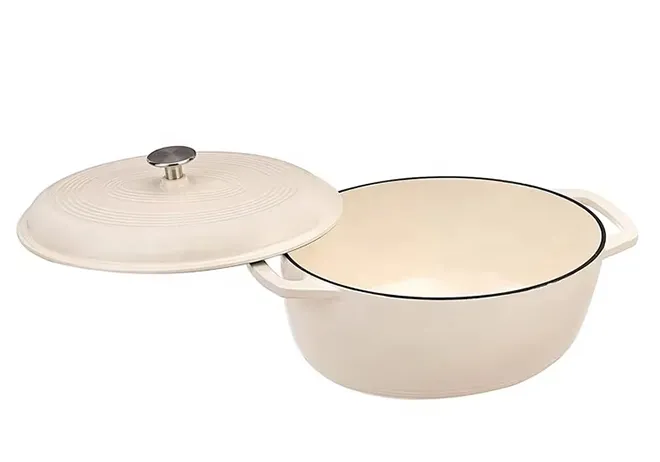
the iron skillet
The Iron Skillet A Cook's Best Friend
In the realm of culinary tools, the iron skillet stands out as a timeless classic, beloved by chefs and home cooks alike. Its durability, versatility, and ability to achieve superb cooking results make it an essential item in any kitchen. This article will explore the significance of the iron skillet, its history, and the reasons why it continues to be a favorite among cooking enthusiasts.
A Brief History
The iron skillet, also known as a cast-iron skillet, has a rich history dating back to ancient times. The earliest versions appeared in China around 500 BCE, where cooks used them for stir-frying and steaming. The concept of iron cookware spread across regions, eventually reaching Europe. By the 18th century, cast iron skillets became significantly popular in American households. Their sturdy construction and heat-retaining properties made them ideal for various cooking methods, from frying and baking to roasting.
Benefits of Cooking with an Iron Skillet
One of the primary advantages of using an iron skillet is its exceptional heat retention. Unlike other materials such as aluminum or non-stick coatings, cast iron can hold heat for longer periods. This property makes the skillet perfect for searing meats, achieving that coveted caramelized crust. Whether you're cooking a juicy steak or sautéing vegetables, the iron skillet provides even heat distribution, ensuring that food cooks uniformly.
Moreover, iron skillets are incredibly versatile. They can be used on the stovetop, in the oven, or even over an open flame, making them suitable for a variety of cooking styles. From a hearty cornbread baked to perfection in the oven to a delicious stir-fry on the stovetop, the opportunities are endless. In fact, many recipes specifically call for a cast-iron skillet due to its unique cooking properties.
the iron skillet

Another appealing aspect of iron skillets is their ability to improve with age. With proper care and seasoning, a cast-iron skillet can develop a naturally non-stick surface that enhances its performance over time. Seasoning involves applying a thin layer of oil to the skillet and heating it, allowing the oil to bond with the iron. This process not only creates a non-stick surface but also helps prevent rust. A well-seasoned skillet can last for generations, often being passed down as a cherished family heirloom.
Cooking with Care
While the iron skillet offers numerous benefits, it does require some care. After each use, it’s essential to clean it properly — avoid using soap, as it can strip away the seasoning. Instead, a gentle scrub with hot water and a stiff brush or sponge is sufficient. If food stubbornly sticks, soaking the skillet or using kosher salt as an abrasive can help lift residue without damaging the seasoning.
It's also crucial to dry the skillet immediately after washing to prevent rust. A light coat of oil applied after drying enhances the seasoning and ensures the skillet remains in prime condition for future use.
The Joy of Cooking
Cooking with an iron skillet can also be a deeply satisfying experience. The tactile feel of the skillet, the comforting weight in your hands, and the sizzle of food hitting the hot surface all contribute to a sense of connection to the culinary arts. Many discover that cooking with cast iron encourages creativity, pushing them to explore new recipes and cooking techniques.
In conclusion, the iron skillet is much more than just a cooking tool; it embodies tradition, versatility, and durability. Its historical significance, combined with its functional benefits, makes it an indispensable part of any kitchen. Whether you are a seasoned chef or an occasional cook, incorporating an iron skillet into your culinary repertoire is sure to enhance your cooking experience, bringing both joy and flavor to your meals.
-
Season Cast Iron Perfectly with GPT-4 Turbo TipsNewsAug.01,2025
-
High Quality Cast Iron Cookware - Baixiang County Zhongda MachineryNewsAug.01,2025
-
Premium Cast Iron Pan: Durable & Perfect HeatNewsAug.01,2025
-
High Quality Kitchen Durable Black Round Cast Iron Cookware Pancake Crepe Pan-Baixiang County Zhongda Machinery Manufacturing Co., Ltd.NewsAug.01,2025
-
Cast Iron Cookware - Baixiang County Zhongda Machinery | Nonstick, Heat ResistanceNewsAug.01,2025
-
High Quality Kitchen Durable Black Round Cast Iron Cookware - Baixiang County Zhongda Machinery | Non-Stick, Heat Retention, DurableNewsJul.31,2025


